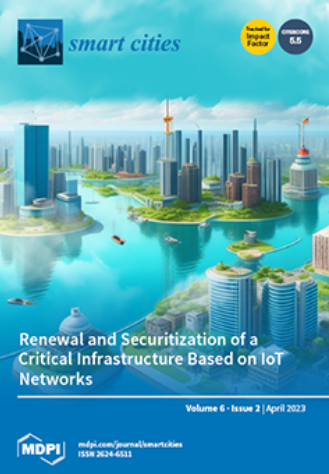评估智慧城市的成熟度模型的开发:焦点区域成熟度模型
IF 5.5
Q1 ENGINEERING, ELECTRICAL & ELECTRONIC
引用次数: 1
摘要
由于智慧城市具有优化城市服务和提高市民生活质量的潜力,因此智慧城市的概念受到了广泛关注。城市正在投资于数字化转型,以变得更智能、可持续和有弹性。因此,有必要建立一个全面和整体的模型来评估智慧城市倡议。本文旨在开发一个模型,该模型可以捕捉智能城市在各个功能领域采用的成熟度。这些领域被划分为重点领域,捕捉智慧城市的不同维度,并分为七个组:信息通信技术、经济、环境、社会、资源、服务和治理。每个重点领域都有一组成熟度级别,描述了城市在不同发展阶段的能力和成果。为了建立模型,我们从文献中提取了16个模型的重点领域。评估这些模型有助于识别差距并建立模型的基础。利用从文献中提取的信息,设计并开发了焦点区域模型。模型开发包括七个主要阶段,它们是:范围、设计、填充、测试、部署和维护。目前的论文验证了提出的模型使用德尔菲法,其中涉及60个领域的专家小组的参与。专家根据他们的经验评估模型的正确性和完整性,并提供反馈。这些反馈被用来修改和最终确定模型。智慧城市成熟度模型为制定基准、规划和改进智慧城市举措提供了一个框架。城市可以使用该模型来衡量他们的表现,并评估他们的弱点和优势。该模型在包括的重点领域范围方面也是最全面的,结果表明该模型具有很高的准确性和一致性,可以有效地评估智慧城市的采用情况。本文章由计算机程序翻译,如有差异,请以英文原文为准。
Development of a Maturity Model for Assessing Smart Cities: A Focus Area Maturity Model
The concept of smart cities has gained significant attention due to the potential of smart cities to optimize city services and enhance citizens’ quality of life. Cities are investing in digital transformation to become smarter, sustainable, and resilient. Therefore, there is a need to build a comprehensive and holistic model to assess smart city initiatives. This paper aims to develop a model that can capture the maturity of smart city adoption across various functional domains. These domains are divided into focus areas that capture different dimensions of a smart city and grouped into seven groups: ICT, economy, environment, social, resources, services, and governance. Each focus area has a set of maturity levels that describe the capabilities and outcomes of the city at different stages of development. To develop the model, the focus areas were extracted from the literature based on 16 models that have been reviewed. Assessing these models helped in identifying gaps and building the foundation of the model. Using the information extracted from the literature, a focus area model was designed and developed. The model development included seven main phases, which were: scope, design, populate, test, deploy, and maintain. The current paper validates the proposed model using the Delphi method, which involves the participation of a panel of sixty field experts. The experts evaluated the model’s correctness and completeness based on their experience and provided feedback. This feedback was used to revise and finalize the model. The smart city maturity model provides a framework for benchmarking, planning, and improving smart city initiatives. Cities can use the model to measure their performance and evaluate their weaknesses and strengths. The model is also the most comprehensive in terms of the scope of the focus areas included, and the results show that the model has a high level of accuracy and consistency and can effectively assess smart city adoption.
求助全文
通过发布文献求助,成功后即可免费获取论文全文。
去求助
来源期刊

Smart Cities
Multiple-
CiteScore
11.20
自引率
6.20%
发文量
0
审稿时长
11 weeks
期刊介绍:
Smart Cities (ISSN 2624-6511) provides an advanced forum for the dissemination of information on the science and technology of smart cities, publishing reviews, regular research papers (articles) and communications in all areas of research concerning smart cities. Our aim is to encourage scientists to publish their experimental and theoretical results in as much detail as possible, with no restriction on the maximum length of the papers published so that all experimental results can be reproduced.
 求助内容:
求助内容: 应助结果提醒方式:
应助结果提醒方式:


